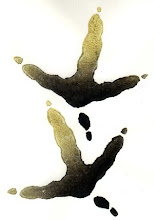
Here's a chart that summarizes the conceptual or philosophical relations between play, game, contest, and sport. Sociologists among you will no doubt find fault with this scheme. Click to enlarge. Hope this helps.
grous•ers 1. Persons who hunt, trap, or pursue various plump, chickenlike game birds of the family Tetraonidae, chiefly of the Northern Hemisphere and having mottled brown or grayish plumage. 2. Complainers, or grumblers, and those prone to general ranting. 3. A number of “smart guys who hunt” and their generally smarter companions.






4 comments:
I don't know about sociologists, but anthropologists immediately recognize that sport is a third order subordinate subset to play in this diagram, which would imply that it may not be necessary to invoke the heavily charged word "sport" at all if your point is about hunting as a form of play. In fact, technically, hunting could be a form of play that is NOT sport, according to Jim's chart.
All sport is play. (chart)
All hunting is play.(J's assertion)
All hunting is sport. ??(invalid)
All sport is play.
All hunting is sport.
All hunting is play.
All sport is play.
Some hunting is sport.
Some hunting is play.
All sport is play.
Some hunting is not sport.
Some hunting is not play.
And by the way, sociology is overrated, with its "structures" and "institutions" and blatant snubbing of culture and brown people without library cards.
;)
". . . which would imply that it may not be necessary to invoke the heavily charged word 'sport' at all if your point is about hunting as a form of play."
The heavily charged word 'sport' is necessary to account for the rules of the game--i.e., for fair chase.
Also, a minor clarification:
All sport is play. (chart)
Sport hunting is play (J's assertion)
Some hunting is not play (J's assertion)
Again, my entire motivation in all of this is to be able to clarify the origins and importance of fair chase rules such as "shoot birds on the wing" and "thou shalt not bait." Those are the arbitrary rules that make hunting a "game."
"The heavily charged word 'sport' is necessary to account for the rules of the game--i.e., for fair chase."
I would venture that organized play as well as competitive games have rules, some more or less formal, some more or less "hard and fast." Sports, and associated rules of the game, generally include "the rules" and the officiating enforcement, much more legalistic.
If your claims depended on the DEC's rules or the USFWS's rules and game wardens as officials/referees/umpires, then ok. But if those preferential "rules" (norms?), aesthetic motivations ie "shoot birds on the wing", and similar "fair chase" unwritten rules are supposed to substitute for "the rules" as in NFL football, I don't buy it, and therefore, don't buy this particular chart for making the case --
It seems to all go back to the nuanced semantics of "sport"...if the usage is synonymous with football, I don't buy it. If the usage is synonymous with British "nobles oblige", chivalry, or some other code that exists on a plane above "the law" than I can buy it. Trouble is, the argument is too complex to have utility to fend off the anti-s to be useful, so I now am contemplating advocating the "burial" of the term.
Thanks so much for this thought provoking exchange. Now, back to guarding job security.
"If the usage is synonymous with British 'nobles oblige', chivalry, or some other code that exists on a plane above 'the law' than I can buy it."
Yes. That's pretty much it.
Rules of Sportsmanship = Fair Chase
And I don't need the term 'sport' to be publicly or widely used, I just need its implications for fair chase to be understood.
Just as I don't need to call common table salt "sodium chloride" in general conversation to put salt on a hamburger, it is still important to understand the chemical properties of salt as "sodium chloride" for understanding its biological implications in other areas, e.g., high blood pressre and hypertension, or kidney function and renal failure.
Post a Comment